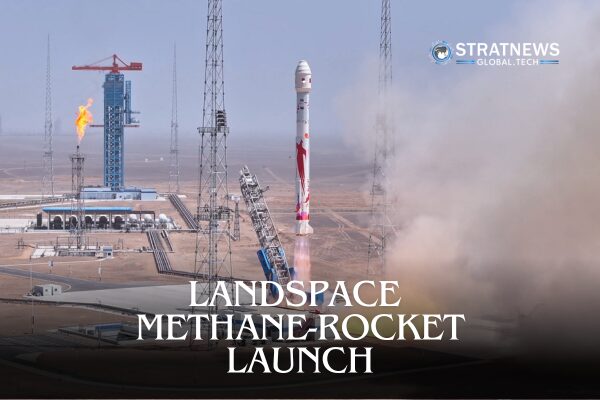Private Firm Expands Use of Cleaner Fuel with Methane-Powered Rocket
China’s LandSpace Technology successfully launched six satellites into orbit on Saturday using its methane-powered rocket, the Zhuque-2E Y2. The launch took place at 12:12 p.m. local time from the Jiuquan Satellite Launch Center in northwest China. This marks the fifth mission in the Zhuque-2 series and highlights the startup’s growing focus on cleaner, cost-effective rocket fuels.
Methane, combined with liquid oxygen, is considered safer, cleaner, and more affordable than traditional hydrocarbon fuels. These qualities make it ideal for use in reusable rockets—a major goal for LandSpace.
Building Towards Reusable Launch Vehicles
LandSpace became the first company globally to successfully launch a methane-liquid oxygen rocket in July 2023, ahead of US competitors like SpaceX and Blue Origin. The company has since been enhancing its rocket capabilities.
Unlike its first methane-powered launch, which carried no satellites, the December 2023 mission successfully deployed three satellites. Saturday’s mission doubled that figure, putting six satellites into orbit, and demonstrated the rocket’s improved payload capacity.
Reusable rockets, popularised by SpaceX, are seen as a key way to reduce the cost of space transport. LandSpace founder Zhang Changwu has confirmed that work on a reusable model is already underway, with a test launch expected in the second half of 2025.
The latest Zhuque-2 model includes advancements that support this vision. For the first time, the rocket used supercooled methane and oxygen—both chilled below their boiling points—to increase thrust efficiency.
LandSpace’s Rise in China’s Commercial Space Sector
Founded in 2015 and based in Beijing, LandSpace is one of China’s earliest and most well-funded private space startups. The company emerged shortly after the Chinese government opened the commercial space sector to private investment in 2014.
LandSpace has attracted backing from major investors, including HongShan (formerly Sequoia Capital China), Country Garden’s investment arm, and the state-backed China SME Development Fund. In December, the company raised 900 million yuan (about $120 million) from a fund focused on advanced manufacturing. In 2020, it secured 1.2 billion yuan (around $170 million) in funding.
With increasing demand for satellite constellations as alternatives to Musk’s Starlink, LandSpace’s advancements position it as a strong player in China’s fast-growing space industry.
with inputs from Reuters


